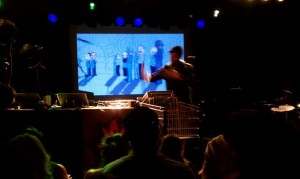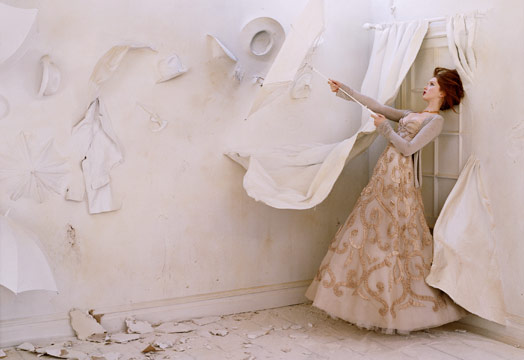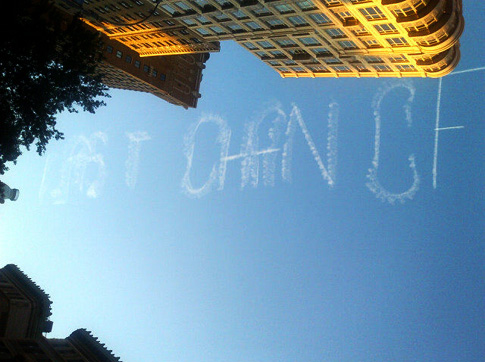I just tried to read this “interview” from ArtsBeat. Oh dear, oh dear, oh dear. It’s director/writer/actress Elaine May interviewing Ethan Coen (of the Coen Brothers) and Woody Allen to promote their new night of three one-act comedies, “Relatively Speaking.” All three (interviewer and both interviewees) have written one-acts for this special production, opening October 20th in New York at the Brooks Atkinson, and the “interview” appears to be a funny e-mail chain between them copied and pasted as it were into the New York Times. All three are trying desperately to be witty and flippant and weird (Woody Allen’s continual allusions to attractive women and/or sexuality seem creepy and wrong, considering both his age and his very public marital situation), and perhaps to make one another giggle, meanwhile the reader (me) is bored and rapidly losing respect for them and hope for myself.
I think the reason why I’m posting this is because I read it right after I saw that “Top Grossing Broadway Shows of This Week” is an actual section of ArtsBeat (and by “section,” I mean list of plays 1-10 with long, incomprehensable numbers next to them) and my general feelings and attitudes about successful theater are in a state of flux right now. Oddly enough, as I got more and more bored with the pompously self-referential May-Allen-Coen interview, I found myself looking for news about “Stickfly” on Broadway. I looked at pictures of the cast and of Lydia, and felt (simultaneously) profound worry and hope. Lydia is someone for whom I have the deepest respect and love, and her success is reaching new levels congruent to me (and a lot of us) being a student of hers. If I ever read an interview with her that turned out like this one, I think I would quit the theatre. It just makes me wonder if there’s an inevitable point–whether determined by length of career or success–where the artist becomes bigger than the work? Where the importance of the artist–how clever or charming or beautiful they can be outside of the work–overshadows the art? I certainly hope not.




 I went to New York this weekend for my sister's birthday and we decided to have a get together on the roof of her apartment to watch the sunset. As we were baking in the heat, we suddenly saw a plane writing something across the sky. It wrote "Last" and then we tried to guess what it would be, such as, "Last day" "Last chance" "Last Laugh" and so on. It got to "Last Chan" so we searched "Last Chance across New York sky" and sure enough, there was an artist behind it, or under it. We found out that it was artist Kim Beck, who chose the phrases "Last Chance", "Lost Our Lease" and "Now Open" to comment on the faltering economy. Now I fully support and respect any and all artistic expression, but something irked me about this smoky sky show.
I went to New York this weekend for my sister's birthday and we decided to have a get together on the roof of her apartment to watch the sunset. As we were baking in the heat, we suddenly saw a plane writing something across the sky. It wrote "Last" and then we tried to guess what it would be, such as, "Last day" "Last chance" "Last Laugh" and so on. It got to "Last Chan" so we searched "Last Chance across New York sky" and sure enough, there was an artist behind it, or under it. We found out that it was artist Kim Beck, who chose the phrases "Last Chance", "Lost Our Lease" and "Now Open" to comment on the faltering economy. Now I fully support and respect any and all artistic expression, but something irked me about this smoky sky show.
